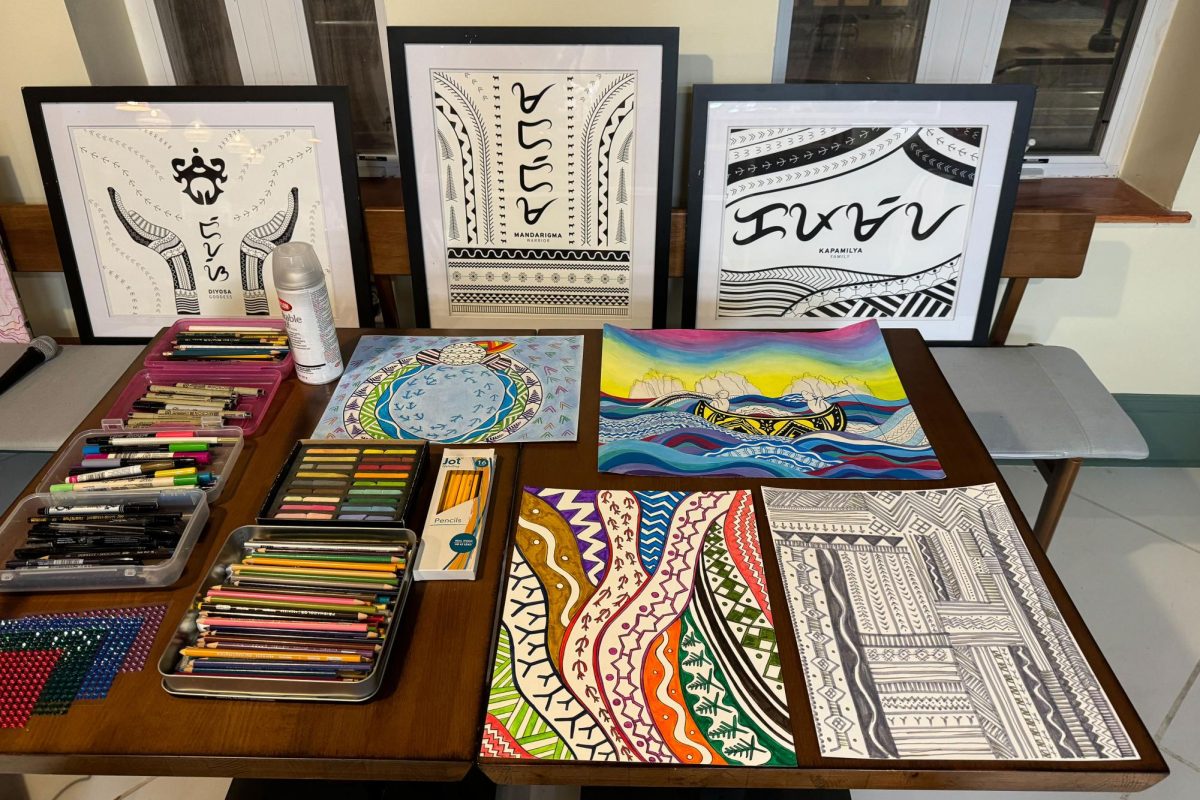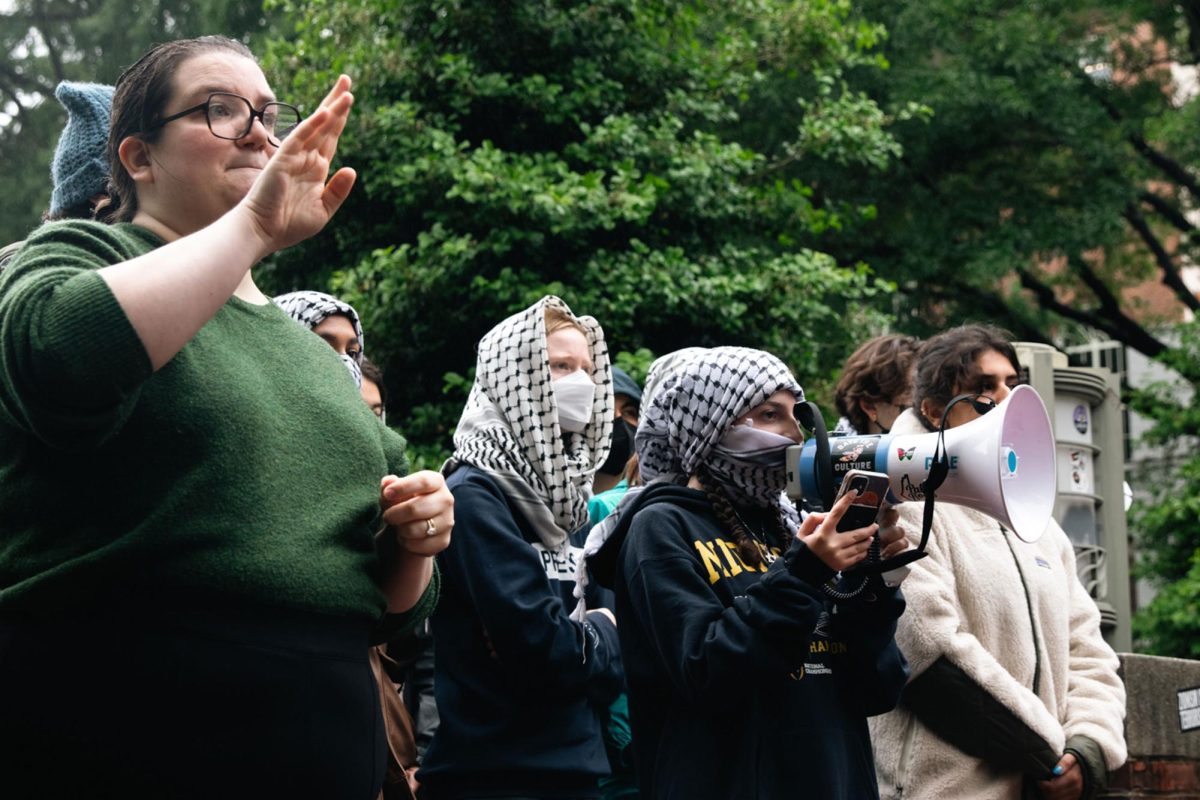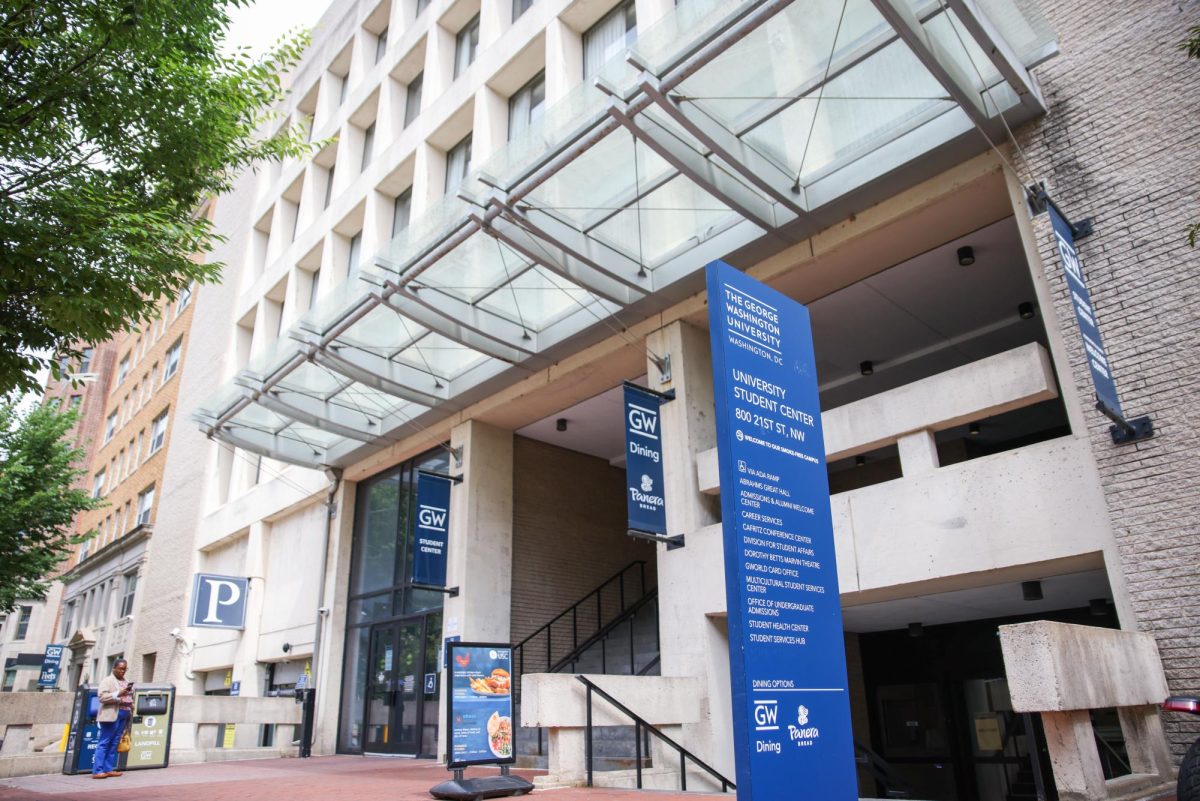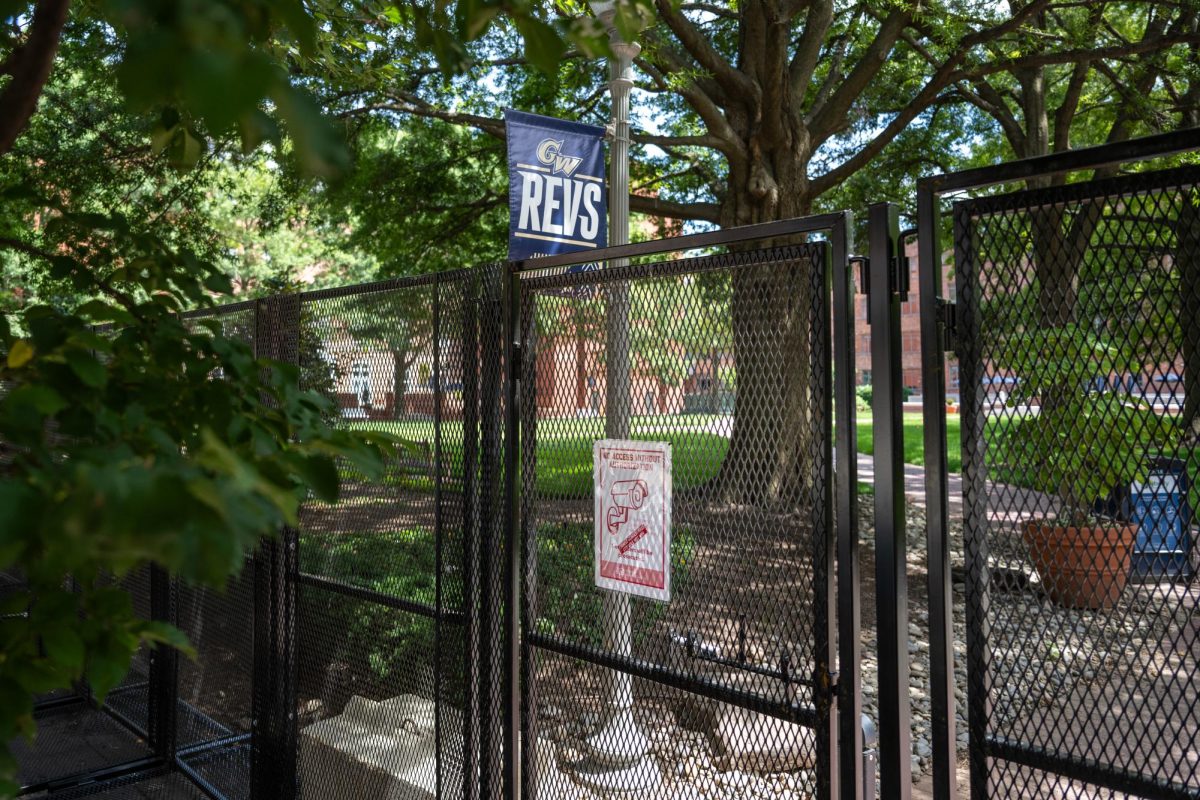Friends and community members celebrated the GW Philippine Cultural Society’s annual Filipino American History Month through events that brought attendees together to bond over shared heritage and celebrate their history.
Executive board members attended four events to commemorate the legacy of Filipinos in the U.S., including hosting a conversation on the development of Filipino national identity, a last name discussion, a book signing and participating in an art therapy event with the National Association of Asian American Professionals. Board members said the programming, which they started planning in the summer, lasted from Oct. 12 to Oct. 24.
Jade Balansag, a junior and the president of PCS, said because FAHM honors Filipino history, the best way to celebrate the month is to learn about Filipinos and their past in tandem with their culture.
“There’s a lot of loaded history there,” Balansag said. “There’s a lot of colonization, a lot of things that aren’t covered in history lessons in high school.”
Congress nationally recognized October as Filipino American History Month because it was the same month Filipinos were first recorded in the mainland United States. Balansag said PCS has been celebrating FAHM since 1992, when the Filipino American National Historical Society — a nonprofit organization that preserves Filipino American history — coined the month.
The first event of the month included a lecture on the development of Filipino national identity with Emmanuel Calairo, the chair of the National Historical Commission of the Philippines, on Oct. 12. Balansag said PCS co-hosted with the National Federation of Filipino American Associations, the Philippine Embassy and D.C. Asia Policy.
Balansag said the event was aimed at helping attendees learn about how Filipinos developed their identity through learning about Filipino American history.
The group hosted a discussion with the National Federation of Filipino American Associations on Oct. 17 where Ryan Namata, the national director of human capital at NaFFAA, talked to attendees about the origin of Filipino last names and gave general advice about names’ effects on job searches and workplaces that value diversity.
“Having an ethnic last name can lower your chances of getting a callback,” Balansag said. “This is something that we all have to deal with, but by all means, be proud of your name, proud of your identity and who you are.”
PCS attended an art event Tuesday night to conclude the month of programming at Hiraya — a Filipino restaurant on the H Street corridor. The event featured Filipina American artist Katrina Villavicencio, who led discussions on Filipino art and culture, including traditional Filipino tribal tattoos.
The tattoos, which are a fundamental aspect of indigenous Filipino culture, each had their own meaning like Kinilat, depicting lightning and thunder to symbolize the connection of heaven and Earth or connection between man and woman. Balansag said she chose to draw wave and warrior symbols to represent a voyage and hard work.
“It was very thought provoking to choose what symbols I wanted to use in my drawing and also make them in a way that told my story,” Balansag said.
Balansag said PCS’ programming was shorter compared to years past because of difficulty finding a space to hold events, especially since officials removed meeting rooms from the basement of District House to make room for the District Market over the summer.
Alyssa Sunga, a sophomore and the organization’s vice president, said PCS’ annual theme this year was “kaya natin to,” the Tagalog term for “we can do it.” Sunga said in Filipino culture, people are seen as full of themselves when bringing up their achievements.
“You can’t celebrate your own successes because your successes also come from someone else,” Sunga said. “It’s like you owe it to them. That’s why you don’t really celebrate.”
Sunga said having a space at GW for Filipino students allows PCS to serve as a space for everyone, not only those of Filipino descent.
“I feel like that’s just the goal of PCS in general, to bridge that gap between your identities,” Sunga said. “Especially in an environment where you don’t really feel that your identity is seen.”
Charlie Basa, a sophomore and the athletics director of PCS who is half-Filipino and half-Italian, said joining PCS helped him learn more about himself after growing up in a predominantly white institution community.
“I found that PCS was a great way to connect with my culture and also just learn a lot about myself that I didn’t have the opportunity to growing up in a white area,” Basa said. “I like to think that I’m helping spread that to the rest of the community.”
PCS historian Gio Tubilla-Chevez, a senior majoring in psychology, said GW previously had a course on Filipino history last year, but it only lasted for a semester. He said he wishes the University had Filipino courses like other schools that have a larger Filipino presence.
“I have a cousin who goes to UMD, and he gets to take Filipino history classes, just on the regular because the community there is quite bigger,” Tubilla-Chevez said.
Tubilla-Chevez said in previous years, PCS hosted language workshops teaching phrases and terms in Tagalog. They said they hope PCS brings the workshops back next year, which fell through this year due to time constraints among board members.
Tubilla-Chevez said one of the most interesting events was the “Why Should Guys Have All the Fun?” book signing with Loida Lewis, the founder of the National Federation of Filipino American Associations and a businesswoman, on Oct. 14.
“There’s a lot of feelings in the Filipino community where we don’t celebrate ourselves or our successes enough,” Tubilla-Chevez said. “Seeing someone at the peak of their success, and just telling it, that was just inspiring, something new that really hasn’t been felt before.”
Tubilla-Chevez said it is beneficial for those not of Filipino descent to learn about other cultures because it’s “fun” to know more about history. He said he has seen students of other backgrounds attend FAHM events and that it is interesting to see different cultures converge.
“There is intersectionality between cultural experiences,” Tubilla-Chevez said. “In some way or another, we all kind of relate to each otherf and certain things speak to us and call our attention.”








